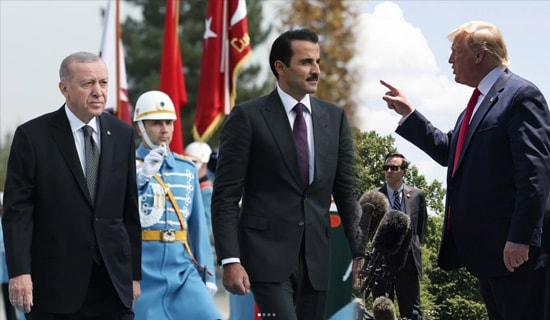Thirty years after Israel and Egypt signed the Camp David peace accords, a senior Al-Gama'a Al-Islamiyya official stated that the accords were sanctioned by shari'a and had served Egypt's interests. This statement was remarkable in light of the fact that, for many years, Al-Gama'a Al-Islamiyya had vehemently opposed recognizing Israel and establishing peaceful relations with it.
In recent years, however, Al-Gama'a Al-Islamiyya, responsible for numerous terrorist attacks in Egypt in the 1980s and '90s, has categorically reversed its position. Its leaders, who are imprisoned in Egypt, have pledged to renounce violence, apologized for their past terrorist activities, and are now promulgating a new ideology that advocates coexistence with the regime. [1]
Following are excerpts from the statement by the movement's founder and mufti, Najeh Ibrahim, which was posted on www.islamonline.net: [2]
Mufti: "Peace Accords with Israel Are Valid According to Islamic Religious Law"
Al-Gama'a Al-Islamiyya mufti Najeh Ibrahim, who served a 25-year sentence for colluding in the assassination of Egyptian president Anwar Al-Sadat, told www.islamonline that the Israel-Egypt peace treaty was valid according to Islamic religious law. Relying on the precedent of Hudaybiyya, [3] Ibrahim contended that "shari'a permitted agreements and peaceful relations - whether between Muslims and Muslims or between Muslims and Jews, Christians, or members of any other ethnic group - provided that they served the interests of Muslim countries." Ibrahim added that claims that peace with the Jews was forbidden, made by several young members of the movement from the 1970s until today, flew in the face of shari'a.
Recognizing Israel - A Temporary Pragmatic Concession to Circumstances
Ibrahim went on to state, "Despite the many drawbacks of the Camp David accords, they were the best [option] available to Egypt at the time, especially since Egypt's domestic, regional, and international circumstances preclude an ongoing military conflict with Israel."
He added: "Egypt has no military, political, or economic capabilities to liberate all Palestine, nor has it attempted to accomplish this in any of the wars [it has waged]… which sought to achieve the political, military, and economic goals of Egypt [alone]." Ibrahim stressed, however, that "while Israeli occupation of Palestine was religiously illegitimate, it was part of reality." At the same time, he added, "facing up to this reality and recognizing Israel as a [sovereign] state did not grant it religious legitimacy…"
Ibrahim justified his position based on history: During the Crusades, two Muslim leaders - Salah Al-Din Al-Ayoubi, one of the greatest Muslim kings of the time, and Nour Al-Din Mahmoud, the last ruler of the Zangi period - signed peace treaties and hudna truces with the Crusaders. He argued that "no religious authority [of that period] had objected to these agreements, except on the grounds that they religiously sanctioned the occupation of Muslim lands by Crusaders… However, this was a temporary compromise, dictated by interests and the balance of power."
No Opponents of Camp David Had a Better Alternative
Ibrahim also claimed that none of the Arab countries that opposed Camp David, foremost among them Iraq and Syria, "suggested a better political or military alternative, and none of them accomplished anything as noteworthy as Camp David, with all its drawbacks."
Endnotes:
[1] See MEMRI Inquiry & Analysis No. 309, "The Al-Gama'a Al-Islamiyya Cessation of Violence: An Ideological Reversal," by Y. Carmon, Y. Feldner, and D. Lav, December 22, 2006, The Al-Gama'a Al-Islamiyya Cessation of Violence: An Ideological Reversal.
[2] www.islamonline.net, March 27, 2009. Ibrahim made similar statements to the Gama'a Al-Islamiyya website www.egyig.com, stressing that he was expressing his personal opinion, and not the movement's official position.
[3] The truce of Hudaybiyya, signed in 628 A.D. between the Prophet Muhammad and his Meccan enemies the polytheist Quraysh tribe, was for a period of 10 years. It was signed by the Prophet when he realized that his forces were inferior to those of the Meccans. Two years after signing the truce, Muhammad captured Mecca.




.jpg)